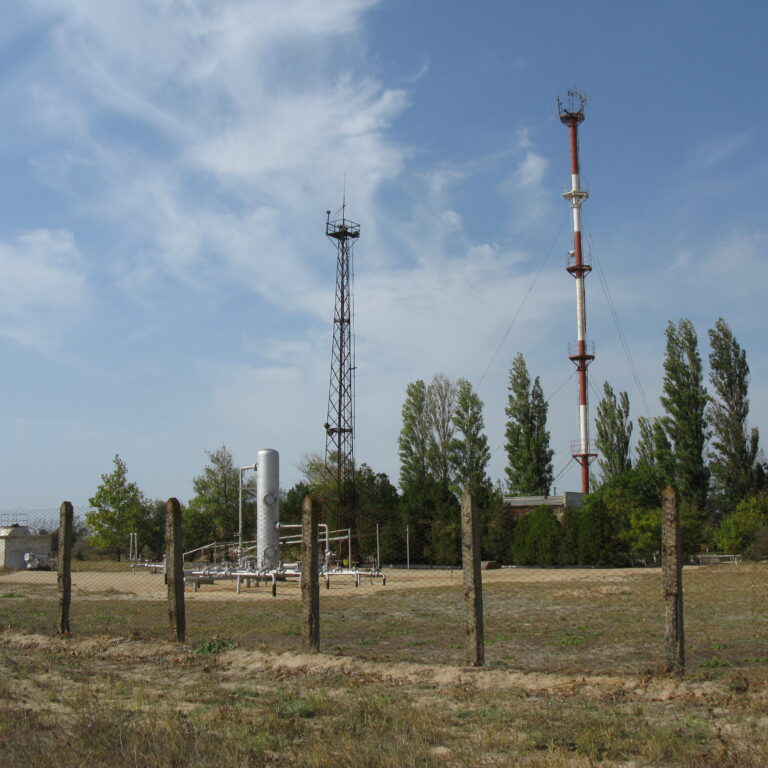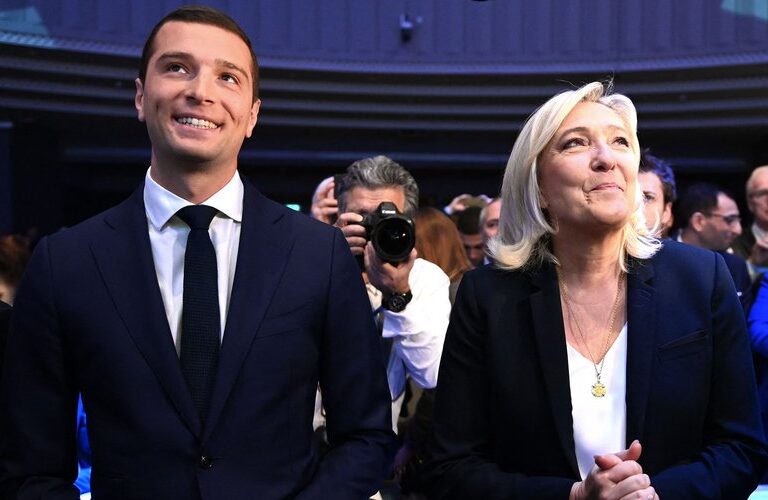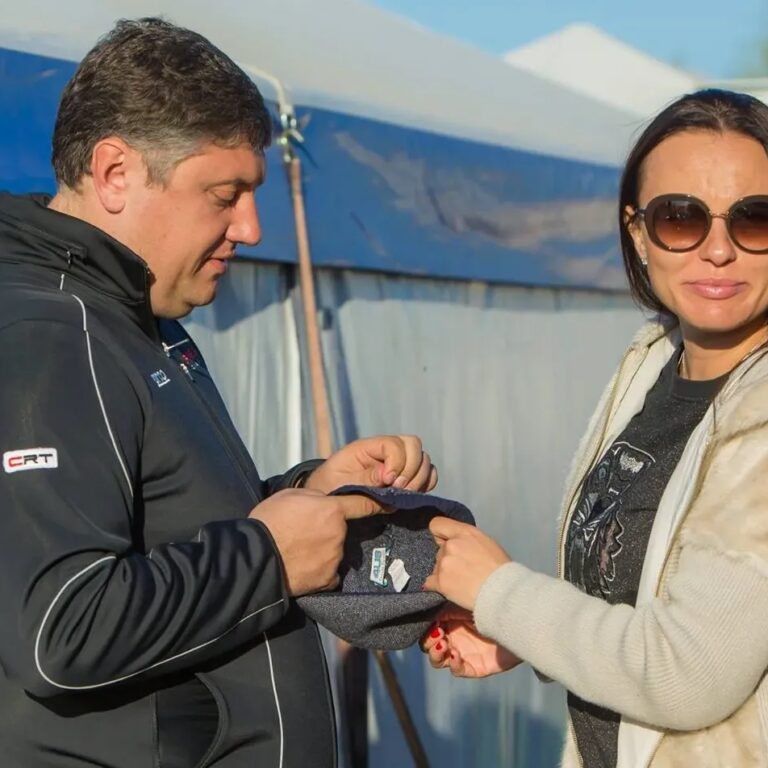In recent years, russia has been actively taking root in the internal structure of European nations: at both the state and public levels. This is due both to the fact that Russia, with the onset of the 2000s, tried as much as possible to make Europe dependent on itself, and to the desire to justify its criminal policy in the eyes of ordinary Europeans. After 2014, russia took on to expand its malign network of influence in Europe ever more actively by financing parties and associations fit to the purpose. Russia also supported “conferences of European right-wing party leaders,” “international conservative forums,” and meetings of the “global revolutionary alliance,” where “Russian world” ideologists Sergey Glazyev and Alexander Dugin promoted ideas of overthrowing European democracies and pursuing imperial expansionism. Through similar communication channels in Europe, russian radical and paramilitary organizations, such as the Russian Imperial Movement, were being popularized in certain circles. Russia was able to infiltrate European governments, and also skillfully penetrated in radical-wing NGOs. France was no exception.
How did it all start?
Attempts to introduce russia into European politics were made long before putin’s ascension to the Kremlin throne. This wasn’t anything new even during the Soviet era. As an empire, russia had always soguth to influence the European agenda by flirting with Western monarchies and popularizing its “culture” among the masses. Peter the Great’s attempts to make the russians more “European” yielded no good results if we look at them through the historical prism. Putting forward territorial claims and pitting European states against each other have been one among the foundations of russia’s expansionist policies.
French culture and science were rather popular in imperial russia even despite the war with Napoleon. During the Crimean War of 1853-1856, the russian empire lost to the coalition, which included France. Further, in early 20th century, relations between the countries deteriorated greatly. The French didn`t agree with the Bolshevik revolution, while the USSR actively promoted revanchist narratives targeting the democratic French Republic. Only in 1941 did things start to change, when Charles de Gaulle, not yet a world-famous leader, came out with the support for the USSR.
Post-World War 2 relations
As is known, the French-Soviet Allied Treaty lasted until 1955. Relations began to deteriorate as Stalin refused to recognize France as an independent state. It is for this reason that de Gaulle, who led the French resistance movement, wasn`t invited to the Yalta Conference even as an ordinary representative or adviser from the French side. The kremlin’s long-standing resentment towards the French made itself felt as the Soviets weren’t willing to regard France as their equal.
Already as an acclaimed leader, de Gaulle realized that the alliance with Stalin was doomed to fail and that the he couldn’t let the kremlin to humiliate the French for the sake of his revanchist ideas.
The Cold War forced the Soviets to looking into exerting direct influence on the processes within post-war Europe. France wasn`t an exception as de Gaulle began to more proactively support rapprochement with the US, moving away from the French communists. It’s the latter who became the kremlin’s target audience.
Any state goes through certain decline in the post-war period. This was easily exploited by the Kremlin, pushing through a number of lobbyists the idea to topple de Gaulle. The first victim was the French youths, who stopped rationally analyzing the country’s economic situation and leaned towards radical leftist ideas, starting to criticize de Gaulle for “outdated administration methods.”
Against this background, rather strange are today`s comments to “Le Figaro” by Pierre De Gaulle, grandson of the great French leader, claiming that his grandfather was allegedly very “sympathetic” to the kremlin:
“My grandfather considered Russia an indispensable reverse ally because it participated in his concept of balance in Europe… I considered it my duty to restore the truth as the general’s heir… “
The policy of distancing France from pro-russian influence is not much like the “concept of a balanced Europe,” as we can see.
Despite public support for de Gaulle, as early as 1947, the French Communist Party, through speculation, took high ground in the country and spread the word that the ideology of communism was allegedly “supported” by the majority of the French. At that time, the attempt to radicalize society and pit people against the government didn`t work out because the Soviet tactics of strong arms, the example of Soviet repression in Eastern Europe (including Ukraine), combined with the major opposition of key democratically-oriented politicians in France hindered the Communists’ plans.
The desire for political independence
In May 1960, after the failed Paris Summit between Nikita Khrushchev, representing the USSR, and the NATO leaders, de Gaulle did indeed shifted away from the Alliance, stopping short of declaring that France should be excluded from the military bloc. Contrary to the speculation of some “Soviet experts” and comments of de Gaulle’s grandson, the French leader sought to focus on defending the country’s independence in all spheres, while not supporting a course towards the USSR.
Then de Gaulle decided for himself that raising the stakes in the Cold War between Moscow and Washington shouldn`t be of his concern. And later in 1963, NATO civil servant Georges Pak was arrested in Paris, who French law enforcers learned had been as a Soviet spy in the past. This is why de Gaulle’s cautious moves within the Alliance and reluctance to support the Kremlin turned out to be justified, since it was the Soviet secret services, infiltrating the Alliance in the 1960s, that posed a huge threat to French sovereignty and independence.
French Communist revanche
The Communist Party regained political influence in France precisely due to the core of kremlin’s network of henchmen, which had been actively taking shape in the 1950s. It gained the support of some trade unions, veterans of the anti-Nazi resistance, artists, and intellectuals. The French Communists tuned in to the politics of anti-Americanism in order to garner support in local artist circles, of which a network of russian lobbyists was also part. Pablo Picasso, for example, was an outspoken anti-American communist, whose work was actively supported by the USSR.
The next step by the Soviets was to speculate on the issue of liberating the French colonies. The Kremlin began to support anti-colonialists but at the same time it launched a flywheel of Soviet propaganda. The USSR also sent weapons to protesters in Algeria and Vietnam. The disputes regarding French-Soviet relations flared up again in France, which was perfectly exploited by russian intelligence through political circles.
However, it was difficult to maintain pro-Soviet stance among ordinary Frenchmen for too long. This could largely be attributed to the lack of mobility and efficiency of russia’s intelligence.
Specific tensions in Franco-Soviet relations arose in 1968, when the USSR treacherously invaded Czechoslovakia, rolling its tanks into the country in an attempt to deal with the problem of anti-Soviet sentiments. Then the French elite, some of whom had been recruited by Kremlin operatives, began to lose interest in the USSR and became more critical of the ideas of communism.
The odious Jean-Marie Le Pen, whose operations were thoroughly investigated by our expert Boris Babin in an earlier investigation, attempted in 1972 to restore the influence of the Kremlin secret services using the cover of the National Front party. As Babin noted, this political association remained in the fringe for years. Moreover, Jean-Marie Le Pen’s relationship with “Marxist” enthusiasts looked ridiculous because he was anything but a real communist.
Such ideology was needed to present some contact with the Soviet secret services, because the sole idea pursued by Le Pen was to ensure the collapse of France’s democratic regime.
Le Pen’s contact with the Soviets wasn`t accidental, since back in the 1960s he maintained close contact with the Soviet anti-Semitic artist Ilya Glazunov, whose activities outside the Soviet Union involved performing the tasks set by his KGB handlers. This allegation was clearly explained by Vladimir Popov in his book “Conspiracy of Villains. Memoirs of a Former KGB Lieutenant Colonel.” Given this background, it is not surprising that one of France’s most marginal politicians would remain friends with another equally odious character, the one representing “democratic” russia – Vladimir Zhirinovsky.
It was during this period that François Mitterrand appeared in the French political arena. An exponent of left-wing views, he supported the classical doctrine of Marxism, which, to the disappointment of the Soviets, didn`t include “close links” with Soviet agents, at least direct ones. His views on economics enabled France to launch its renaissance. It was during his first presidential term that France was noted for prosperity and bringing confidence back to the Republic, but this didn`t last long…
In 1983, Franco-Soviet relations deteriorated further, thanks to Vladimir Vetrov. A high-ranking KGB operative secretly passed on extremely sensitive information on how the Soviets were stealing Western technology from NATO. France’s General Directorate of Internal Security (counter-intelligence) are believed to have received from Vetrov 2,997 pages of top secret documents.
Almost immediately, 47 Soviet diplomats were expelled from Paris and the USSR embassy staff was significantly reduced. Social democracy was being consolidated in the Republic, much to the aggravation of Soviet handlers and figures like Le Pen.
Vladimir Kryuchkov, Andropov’s top henchman, later publicly admitted to russia running an extensive network of informants in Paris. He also claimed that he himself had been actively involved in this kind of “work”, flirting with the far-right circles and French intelligentsia to gradually engage them into cooperation with the Soviet secret services.
In 1985, two years into the scandal, Mikhail Gorbachev attempted to reset the relations with France, but against the background of the Soviet-led Afghan war, the USSR programme to steal Western defense technology, and “ambiguous” links with African Communists, the effort failed. The following year, in 1986, the world was rocked by the Chornobyl disaster, for which many have for good reason believed the kremlin was to blame.
The French set a clear course towards rapprochement with NATO, which a priori made close contact with the USSR impossible, for reasons of both the Alliance doctrine and the need to preserve national security within France itself.
Resetting relations, or Kremlin’s infiltration of French politics
It would seem that with the self-destruction of the USSR, all the nations once captured by the “sickle and hammer” would gain independence along with faith in democracy. In most cases, this is what happened, as is vividly seen in Ukraine. But there was another side to the coin: the russians were not about to give up their expansionist ideas, their autocracy, and aggressive policies. In the early years, all this was nicely veiled with a front image of a supposedly “democratic russia.”
Behind the screen, however, from the first days of its “independence,” russia began to plan, secretly from the international community, the gradual buildup of its Black Sea Fleet in Crimea, theft of Ukrainian weapons, and speculations on the nuclear arms topic.
Franco-russian relations revitalized in the early 1990s, largely due to the close ties between Boris Yeltsin and French Presidents François Mitterrand and Jacques Chirac.
François Mitterrand, as mentioned above, has been as cautious as possible about the Kremlin’s influence, seeking France’s economic and political independence. Back in 1986, when he appointed Jacques Chirac as Prime Minister, due to the victory of the right-wingers, the two began to build relations between each other. This paid off until the early 1990s.
Most likely, François Mitterrand sincerely thought nothing wrong about building relations with the “democratic russia” as he saw it.
Perhaps, had Boris Yeltsin been alike today’s vladimir putin, the French president would not have wanted a Franco-russian alliance. In particular, during his presidency, the 1994 Security Cooperation Agreement was signed.
The “coexistence” of right-wing and left-wing politicians at the heelm of state pre-determined the “successor” to the presidency. It was Jacques Chirac. Under him a number of bilateral treaties were signed: the Declaration on the creation of the French-russian Prime Ministerial Commission of 1996 and the Agreement on the creation of the russian-French Cooperation Council on security issues of 2002.
Believing in own impunity amid a weak response from the international community in 1992 to the crisis in the Moldovan region of Transnistria, as well as virtually seeing no international reaction on the criminal invasion of Chechnya in 1994, the kremlin believed that the hybrid way of influencing peoples both within russia and the former USSR would be the “ideal” solution to pursuing russia’s geopolitical ambitions.
In those years, russia had already actively started to expand a network of “lobbyists” among functionaries in the Balkans. In 1998, the Second Chechen War began, and France wasn`t left out from that crisis, either.
Russian debts in France and russian army’s war crimes in Chechnya affected bilateral relations. Thanks to the kremlin’s lies and the portrayal of the people of Chechnya as “terrorists” by Russian political elites, bilateral relations had improved by 2001. It was then that the world entered the phase of fighting international terrorism, which, as we can see, was perfectly exploited by putin, who began to pose on the world stage as a “fighter against terror.”
The worsening of relations between the US and France resulted in the latter strongly criticizing the US army campaign in Iran, despite the obvious need to fight the Iranian regime, which threatened global security. Russia has also joined in the criticism. It was on this basis that the French-russian relationship began to grow stronger.
A brief guidebook of russia’s secret services in France
It didn`t take much effort for putin to reach by the beginning of the 2010s the level of kremlin secret services’ presence in France as of the 1960s and 1980s. The policies of the Fifth Republic, characterized by its “soft power,” were the perfect opportunity to reinforce a vast network of kremlin-controlled lobbyists among European functionaries. Hand-picked “politicians” like Jean-Marie Le Pen and Marine Le Pen played a certain role in this, but it wasn`t just the involvement of corrupted politicians and journalists that influenced this outcome.
The decisive role, according to Nicolas Yenin, author of the book “Russian France: An Investigation of putin’s Network”, was played russian secret services always considering France as “the weakest link in Europe.”
Through the outreach by russian centers of influence, which we will describe in more detail later, the “network of assets” was further spreading in the ranks of social movements – be it leftists, right-wingers, or even centrists. The French authorities either turned a blind eye to this or chose not to eact at all, as “the French remain a little naive about the level of Russia’s espionage.”
The guidebook of the russian secret services laid down the need to tailor propaganda narratives addressing average Frenchmen to suit proponents of any political opinions. The Defense Industry Courier news agency provided a brief classification of such narratives designed for different audiences:
- For the forces on the left side of the spectrum, the idea of a new “world pendulum” was circulated, the essence of which supposedly encompasses the struggle against “American hegemony” and “capitalist imperialism”;
- For the centrists, the setup of “confidence and security architecture” across Europe has been popularized, with France, Germany, and russia being tasked to work on its foundations;
- For the right-wing forces, the initiative was being introduced to overthrow the country’s political order to bring to power a “strong leader”, which was explained with the ongoing “destruction of European society and idea of a nation state.” This is why the French should allegedly move to a “conservative Christian policy,” which the russian federation “defends”.
In addition, France has never been dependent on russian energy like Germany, which gave its citizens a “phantom” hope of independence in their relations with Moscow. That is why people, even those quite critical of russia, had a certain sense of security. This is easily explained even by the example of how much gas France was bying from Russia – the average share was almost always around 17% of the total imports.
The Fifth Republic’s sense of “existential security” and “soft politics,” coupled with French politicians’ links to the Kremlin, gave russian agents of influence an excellent chance for a fairly easy and effective penetration.
The dawn of russian influence on France’s leadership
In 2006, the future president of France, Nicolas Sarkozy, pursued a demonstrably negative stance on russia, especially in his interview with “The Best of Worlds”.
In the interview, he said rather interestingly that “he would never shake a hand stained with Chechen blood.” A year later, ahead of his first visit to Moscow, he complemented his position by branding russia “a country that makes it difficult to solve the world’s huge problems.”
Had he been a little more confident in his words and had he stuck to his initial principles, perhaps there would not have been a large-scale deployment of russian pseudo-religious and “cultural” communities in France, Georgia would have been able to get real protection from russian aggression, and in 2014 no one in the French political elite would have recognized the occupation of Crimea as “legal”, etc… But Sarkozy caved in to the Kremlin rather quickly, largely due to a certain infantilism on the part of the rest of Europe.
During the russo-Georgian war, Sarkozy acted as a mediator between Moscow and Tbilisi. The kremlin then completely ignored the position of Georgian President Mikheil Saakashvili. The French leader proposed his own solution to the crisis, which was branded the “Sarkozy plan”, while in russia it was referred to as the “Medvedev-Sarkozy plan.” No one in moscow actually took Sarkozy’s proposals seriously, and amid his attempts at mediation, russian influence in France itself were growing exponentially.
The indecisiveness and lack of unity within the EU, as well as the absence of a firm reaction to russia’s aggression against Georgia in 2008, led the then-French President Sarkozy to “fine-tune” the agreement between Georgia and Russia – to suit the favorable interpretations of kremlin’s policies.
When the international debate on South Ossetia and Abkhazia took place in Geneva on 15 October 2008, the French president was de-facto unable to take any tough steps. His last words were:
“It is not for russia to decide where Georgia’s borders should be…”
It feels uneasy to looking back on this and recall that exactly the same year Ukrainian President Viktor Yushchenko predicted a Russian war on Ukraine. It was in 2008 that the hope of restoring international law in russia was buried forever.
The year 2010 was memorable for France selling to russia its Mistral-type amphibious assault ships. At the time, Poland, Ukraine, Georgia, and the Baltic states were outraged because the move posed a direct threat to their security. They were right. The decision was taken with no real opposition and saw support on the part of pro-russian elites, especially among the far-right.
More details on French politicians who helped strengthen the positions of russian agents in France, as well as on pro-russian funds and organisations, and the russian diaspora’s influence on French public opinion regarding russian military aggression against Ukraine and occupation of Crimea will be covered in the second part of the investigation.
Nina Yelanskaya, ARC correspondent.







